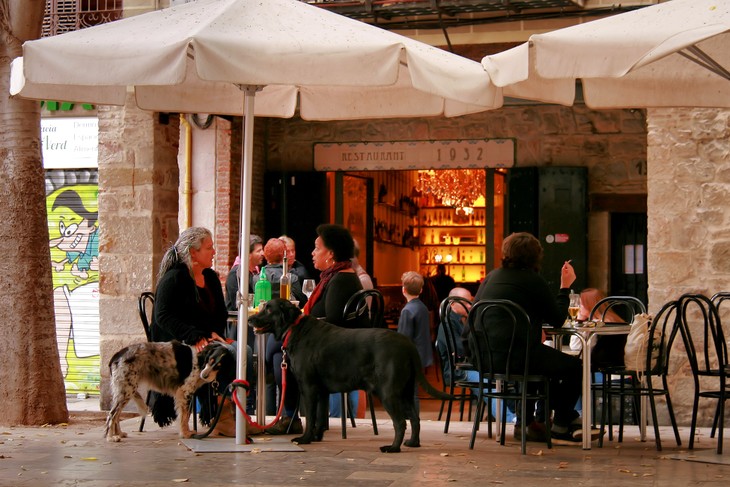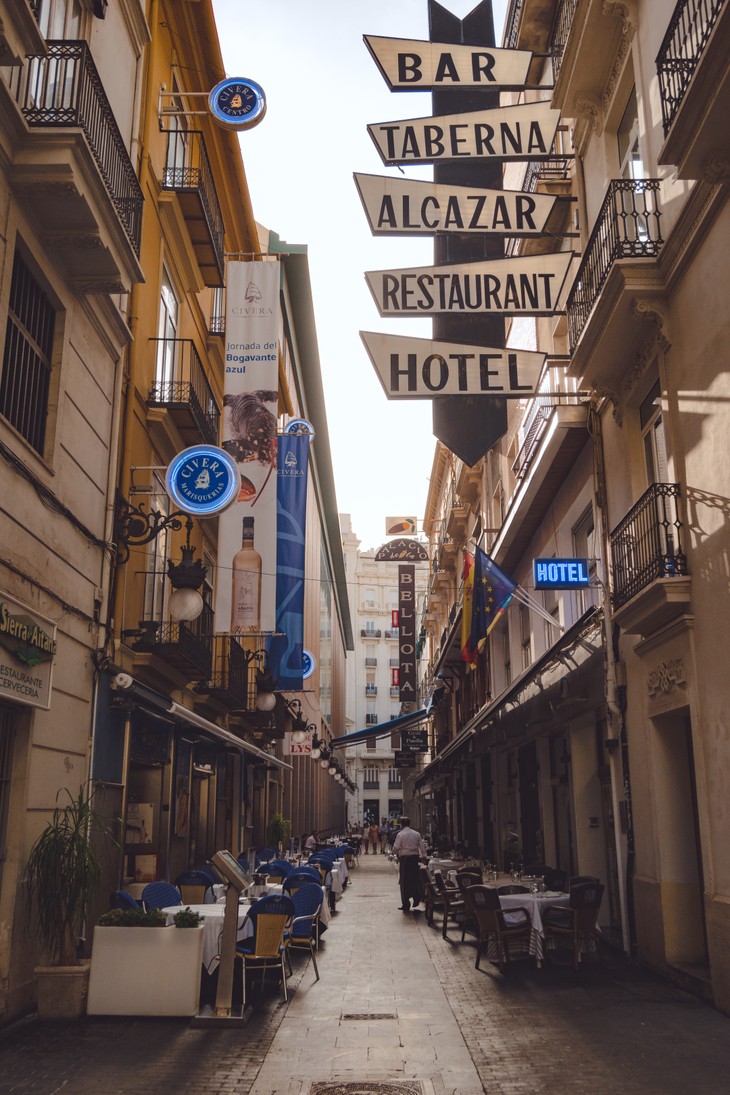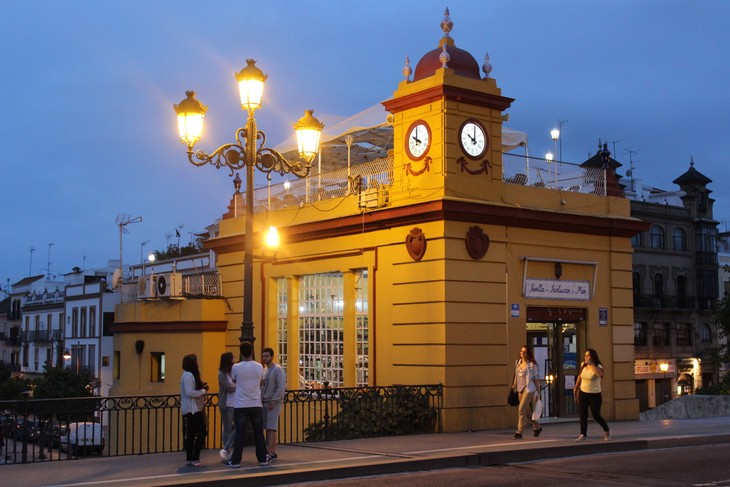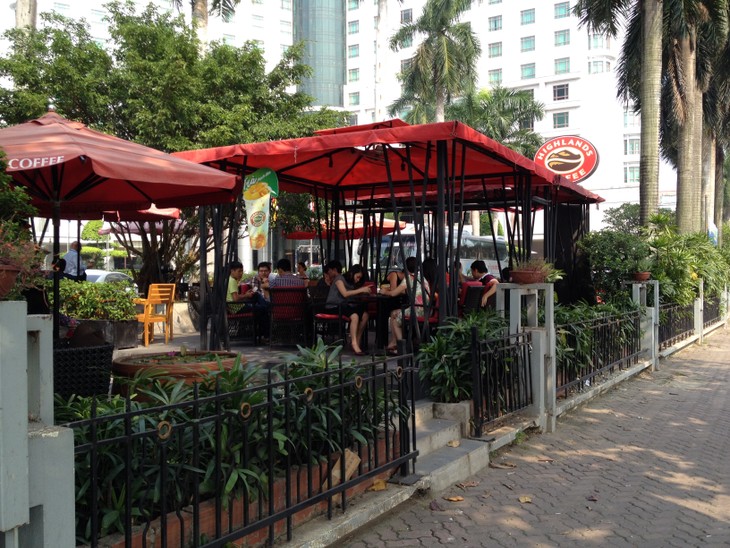Sobremesa: After-meal Spanish tradition
Hong Phuong -
(VOVWORLD) - Welcome to Spain, where dinner starts at 9 pm, and by the time everybody gets up from the dining table, it’s the next morning. The definition of a perfect meal, to many Spaniards, is delicious food, enjoyable company, and what follows it –a several-hour-long chat known as “sobremesa”. Let’s discover the fascinating sobremesa tradition in today’s Cultural Rendezvous with Paloma Rovira, a Spanish lecturer at Hanoi University.
There’s nothing new about lingering after a meal for some conversation – several countries in the world do it. But this tradition has its own name only in Spain, where it’s called “sobremesa”. The fact that there’s a specific term for it means Spaniards take their post-meal tradition seriously. Paloma explains:
“‘Sobre’ means ‘on top’ and ‘mesa’ is just ‘table’. It means the tradition of staying the table after a meal and talking about any topic with your family, friends, or whoever you had the meal with. It’s not really a heated discussion, just a light discussion about politics or news. They are just topics that are not too problematic or negative.”
 Sobremesa is a beloved mealtime tradition in Spain (Photo: Jorge Franganillo/Wikimedia Commons) Sobremesa is a beloved mealtime tradition in Spain (Photo: Jorge Franganillo/Wikimedia Commons) |
Sobremesa is not something one can plan ahead of time. It happens only in the right atmosphere – after finishing the food, people sit back, open some more bottles of wine, put down their phones, and fully engage in the conversation. This is when the fun really begins. There is no set time for sobremesa, says Paloma. It can last for as long as there are topics to talk about.
“Usually, when you’re at work or with your co-workers, you have to go back to work, so it can’t take that long, maybe 30 minutes. But if you’re with your family, it could take several hours, like two or three hours, just talking, especially on occasions like Christmas dinner. After the big dinner you will spend two or three hours catching up with your family because it’s a big meeting after a long time so you have a lot to talk about. I used to have sobremesa with my family day after day."
Sobremesa has always been an indispensable part of Spanish culture for some practical reasons. First, it allows some downtime to digest the food.The bigger the meal, the longer the sobremesa. On arid summer days, sobremesa is a relief for those seeking a midday break away from the scorching sun.
“I think it's really difficult to pinpoint the exact time this tradition started, but the thing is related to the Mediterranean lifestyle. It's also quite common in Italy and Greece. I think there’s no special reason, but it’s related to the weather and our meal schedule. We eat lunch really late, 2 or 3 p.m, and that time of day is really hot. After a big meal, you just want to relax and not do anything, right? So you just sit there and talk,” Paloma said.
 The hot weather in Spain is a reason for sobremesa's popularity (Photo: Nan Palmero/Wikimedia Commons) The hot weather in Spain is a reason for sobremesa's popularity (Photo: Nan Palmero/Wikimedia Commons) |
Spaniards are known for their spirited communication, which Paloma says is another reason why sobremesa is so popular.
“I also think it's related to our talkative personality because in our culture, it’s really a good sign if you talk a lot. We don’t like to be quiet. It’s our way of socializing."
The tradition can be observed at Spanish restaurants. Waiters don’t bring the bill immediately after the meal, but instead wait for the guests to ask for it. Rushing customers, says Paloma, is frowned upon in restaurants.
“It’s quite common in restaurants. We consider it rude if we finish a meal and the waiter comes and tries to kick us out of the restaurant. We don't like it. The restaurants wait for you to take time after a meal to relax and talk and digest a little bit before leaving the restaurant. They know about it and they respect it.”
 Sobremesa is respected in Spanish restaurants (Photo: Tulumnes/Wikimedia Commons) Sobremesa is respected in Spanish restaurants (Photo: Tulumnes/Wikimedia Commons) |
It has been five years since Paloma moved to Hanoi, where a term equivalent to sobremesa does not exist. Still, she found a similar local pastime: coffee culture. So enjoyable after-meal chats continue to be a part of her life in Vietnam.
"When I have lunch or a meal with my Vietnamese co-workers or friends, we usually finish the meal and immediately get up and go to another place, a tea shop or coffee shop. And we sit there and talk for three or four hours. It’s not exactly the same because in Spain we do it at the same table where we ate, but I think Vietnam also has that tradition or maybe they just meet at the tea or coffee shop."
 Long-hour chat is a feature of Vietnamese coffee culture (Photo: Phan Minh Tuan/Wikimedia Commons) Long-hour chat is a feature of Vietnamese coffee culture (Photo: Phan Minh Tuan/Wikimedia Commons) |
To many Spaniards, each sobremesa is a precious opportunity to foster a human connection that is hard to find in the digital age. In our busy lives, perhaps slowing down a little to bond with loved ones is something we can all learn from this delightful culture.
Hong Phuong